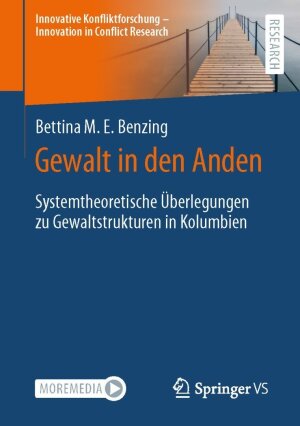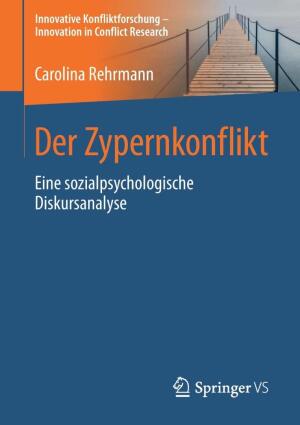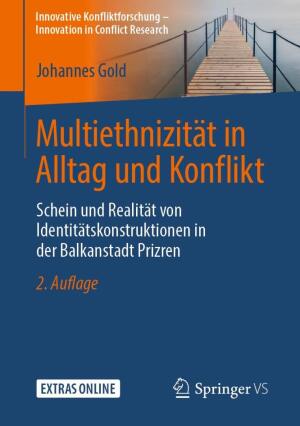Publications
book cover
Image: Springer VS
Imposing Sanctions on Violent Non-State Actors to Restore International Peace and Security
by Christopher Huber
“Imposing Sanctions on Non-State Actors to Restore International Peace
and Security. A Systematic Analysis of the Conditions under which UN
Targeted Sanctions Work” is the latest publication of our series
„Innovation in Conflict Research“. The author Christopher Huber is a
Research Fellow associated with the German Institute for Global and
Area Studies (GIGA) in Hamburg. His research focuses on international
sanctions, counterterrorism, and religious conflicts.
Content of the book:
In the last decades, violent non-state actors (VNSAs) such as rebel
and terrorist organizations have proven their capacity to break
international law. The international community, particularly the
United Nations (UN), has reacted to this development by redirecting
its conflict resolution efforts to these non-state entities. This has
turned targeted sanctions into one of the most vital and indispensable
foreign policy tools available to the UN Security Council in combating
terrorism and contributing to the peaceful resolution of (intra-state)
conflicts. Despite the UN Security Council’s growing tendency to
sanction VNSAs, there has been little research analyzing the effects
of UN targeted sanctions on these non-government actors.
Christopher Huber provides an overall in-depth analysis regarding the
use, objectives and effectiveness of international sanctions as a
policy instrument, including history, legal framework and different
types of UN-initiated sanctions. In the main part of his work, he
analyzes the instruments and effectiveness of UN sanctions against
non-state actors (esp. rebel groups and terrorists) based on a
comprehensive and innovative quantitative data collection and
regression analysis of UN-primary sources (e.g. UN Panel of Experts
and Monitoring Groups), secondary sources, statistics from research
institutes and process tracing. He eventually applies all of these to
two different case studies: the Sudanese Peace and Equality Movement
and the Al-Shabaab militia in Somalia. His data are merged in the
Sanctioning Non-State Actors (SNSA) Dataset, which is the first-ever
dataset on international sanctions to explicitly address non-state
actors and the first-ever dataset based on an annual evaluation of
sanctions’ effectiveness.
As he claims and proves, UN sanctions complemented by regional
sanctions and peace missions are more effective the more
hierarchically structured and secular the non-state actors and the
more serious the economic consequences are. By way of contrast, they
are less effective if the sanctioned groups receive assistance from
other states. He identifies, on the one hand, detractors vis-à-vis
effectiveness (religious ideology, independent U.S. sanctions, support
from neighboring states) as opposed to effectiveness enhancers
(including economic consequences of sanctions, concurrent military
operations, and/or international mediation).
In his monograph, Christopher Huber fills a gap by shifting the focus
on non-state actors and ascertaining the general mechanisms through
and conditions under which UN targeted sanctions imposed on VNSAs tend
to be effective.
Overall, his tripartite analysis combining quantitative and
qualitative research methods demonstrates that the state-centric
understanding of how sanctions work cannot be simply transferred
one-to-one to the effective sanctioning of violent non-state actors
such as rebel and terrorist movements. Moreover, against the backdrop
of the dramatic increase of non-state actors in the international
conflict landscape, Christopher Huber´s work is the first
quantitatively comprehensive analysis of its kind.
For further information please visit Springer at springer.comExternal link
Gewalt in den Anden
Image: Springer VSGewalt in den Anden
by Dr. Bettina M.E. Benzing
The book deals with the long-term structural effects of violence in post-conflict societies, one of the most actual topics in peace and conflict studies. As author Bettina Benzing argues current research often lacks in-depth analyses of phenomena of violence, and in consequence provides only inadequate answers to the question of why structures of violence persist even after conflicts have ended. As a theory-guided case-study of post-conflict Colombia, the author seeks evidence for the persistence of social structures that result from hot conflicts and tend to outlast it. Based on empirical research in different parts of Colombia the author shows how these structures of violence have produced enduring post-conflict mechanisms of mistrust, that tend to perpetuate open violence, become a pattern of social communication and bring about exclusionary structures for marginalized segments of the population that are inimical to sustainable peace.
Her thesis is based on a total of 51 qualitative interviews conducted in narrative style as well as on guideline-based expert interviews in different parts of the country in 2015 and 2016. During her research the author visited various major cities in the country such as Bogotá, Medellín, Cali, Barranquilla, Santa Marta, among others, including marginalized neighborhoods, as well as rural areas (some of which were highly contested in the past). In addition, the author lived in Colombia during 2015-2018, which allowed for participant observation.
Read more about this publication on springer.comExternal link
Der Zypernkonflikt
Image: Springer VSDer Zypernkonflikt: Eine sozialpsychologische Diskursanalyse
by Dr. Carolina Rehrmann
Seit Jahrzehnten wird um eine Wiedervereinigung Zypern gerungen. Ergebnislos. Mit sozialpsychologischer Expertise und interkultureller Sensitivität untersucht Dr. Carolina Rehrmann das Ineinanderwirken von Politik und Alltagswelt der Mittelmeerinsel. In einer umfassenden Analyse der gegenwärtigen Kristalisationen der zur Schau gestellten und der verdrängten und vergessenen zypriotischen Konfliktgeschichte, der mit ihr verbundenen medialen Dauerdiskurse, glorifizierender Geschichtsbücher des Schulunterrichtes und friedenspolitischem Aktivismus zeigt die Autorin die andauernde Strahlkraft nationaler Narrative auf, die einer Überwindung des Konfliktes bis heute im Wege stehen.
Das Buch richtet sich an Politik- und Friedenswissenschaftler, Sozialpsychologen, Medien- und Kulturwissenschaftler sowie an ein breiteres Publikum, dass sich für die Rolle von exklusivem Nationalismus und kollektiver Erinnerung für die Verhärtung von Konflikten interessiert.
Read more about this publication on springer.comExternal link
Multiethnizität in Alltag und Konflikt
Image: Springer VSMultiethnizität in Alltag und Konflikt: Schein und Realität von Identitätskonstruktionen in der Balkanstadt Prizren
by Dr. Johannes Gold
In diesem Band untersucht der Autor eine Stadt im Nachkriegskosovo, in der der Alltag weitgehend konfliktfrei gelingt, die in Konfliktfällen aber in ethnische Mobilisierung zurückfällt. Johannes Gold analysiert dabei nicht nur die Beziehungen zwischen Albanern und Serben, sondern geht gleichermaßen auf Türken, Bosniaken und Roma ein. Die Konflikte werden dabei von nationalen wie internationalen Einflüssen durchdrungen. Die Identitäten der einzelnen Gruppen erweisen sich als ambivalent, wie der facettenreiche Blick in Alltags- wie Konfliktbeziehungen offenbart. In Prizren offenbart sich somit wie im Brennglas die in Postkonfliktszenarien häufige Herausforderung des Wiederzusammenfindens von Konfliktparteien.
Die Studie basiert auf umfangreicher Feldforschung, die eine Fülle von Interviews und eine eigene Umfrage umfasst. Kulturanthropologische Ansätze und computergestützte Analysen komplettieren das Multimethodendesign.
Read more about this publication on springer.comExternal link


